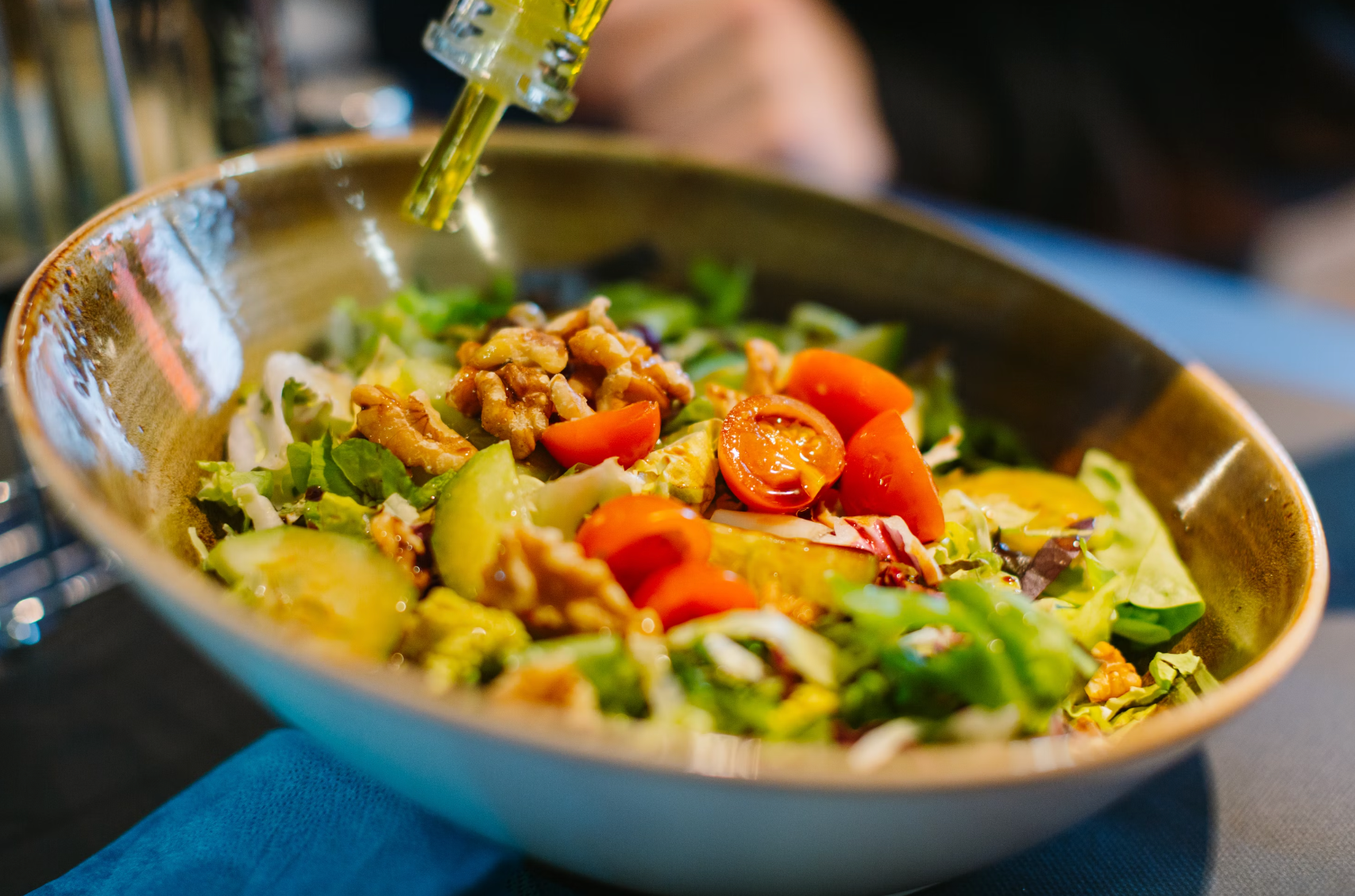How Your Diet Affects Your Period: Foods for Cramps and Regular Cycles

Your diet plays a big role in how your body works, especially when it comes to your menstrual cycle. What you eat can affect everything from period cramps to the heaviness of your flow, and even whether your period shows up on time. In this post, we’ll look at how certain foods, nutrients, and eating habits can impact your period and how simple changes to your diet can lead to more comfortable, consistent cycles.
Let’s break down how nutrient intake, inflammation, blood sugar regulation, and hydration are connected to your menstrual health.
The Role of Nutrients in Your Period
Your body needs nutrients to run smoothly, and some are particularly important for having a healthy menstrual cycle. Missing out on these key nutrients can make your period more painful or irregular.
Iron
Iron is important because it’s lost during your period through menstrual blood. Low iron levels can lead to tiredness and even missed periods. Foods rich in iron, like leafy greens (spinach, kale), legumes, and fortified cereals, help replenish your iron stores. According to Harvard Health, iron deficiency is common in people with heavy periods, so it’s a good idea to include these foods in your diet regularly.
Calcium
Calcium is not just good for your bones—it can also help with period pain. Studies suggest that calcium-rich foods, such as tofu, broccoli, and fortified plant-based milk, can reduce cramps. If you're not getting enough calcium, you might notice more painful periods or severe PMS symptoms. Medical News Today highlights how calcium supplements can also reduce the physical and emotional symptoms of PMS.
Other Vitamins
Vitamins B6 and D are also important for managing your period. Vitamin B6, found in bananas, potatoes, and whole grains, can help regulate mood and ease PMS. Vitamin D helps with calcium absorption and may reduce inflammation. Including fortified foods or getting some sunshine daily can help you keep these vitamins in check.
Inflammation and Period Pain
Period pain, or dysmenorrhea, is often linked to inflammation. When your body is inflamed, you’re more likely to feel the effects during your period. Eating anti-inflammatory foods can help reduce period pain and cramping.
Foods That Help with Inflammation:
Berries: Packed with antioxidants, berries like blueberries and strawberries can help lower inflammation in your body, according to Cleveland Clinic.
Leafy greens: Spinach and kale are packed with vitamins and minerals that reduce inflammation.
Omega-3 fats: Found in flaxseeds and chia seeds, these healthy fats help soothe period pain.
On the other hand, processed foods can increase inflammation. Highly processed foods like fast food, chips, and sugary snacks contain trans fats and high levels of sugar, which can worsen period cramps. Limiting these can make a huge difference in how you feel during your period.
Blood Sugar Regulation
Your blood sugar levels can impact your hormones and, in turn, your period. When blood sugar spikes and crashes, it can lead to mood swings and other symptoms during your menstrual cycle.
How to Regulate Blood Sugar
Whole grains: Instead of white bread and pasta, opt for whole grains like brown rice, quinoa, and oats. These help keep blood sugar stable.
Protein: Eating enough protein, like beans, lentils, and plant-based proteins, helps you feel full longer and prevents blood sugar dips.
Avoid sugary snacks: While it's tempting to reach for something sweet during your period, too much sugar can spike your blood sugar and cause a crash later on. This can lead to fatigue and irritability. According to WebMD, keeping blood sugar stable can help balance your mood and energy during your cycle.
By maintaining stable blood sugar, you’ll have fewer mood swings, feel more energetic, and likely experience less bloating and discomfort.
Hydration and Your Period
Staying hydrated is one of the easiest ways to support a healthy menstrual cycle. Dehydration can lead to headaches, increased cramping, and bloating.
Drinking plenty of water, herbal teas, and eating water-rich foods (like cucumbers, watermelon, and oranges) can make a big difference in how you feel.
Eating Processed Foods During Your Period
Processed foods, like chips, fast food, and sweets, may taste great, but they don’t do your body any favors during your period. These foods are often high in salt, sugar, and unhealthy fats, which can:
- Increase inflammation, making period cramps worse.
- Cause bloating and water retention, leading to discomfort.
- Spike your blood sugar, resulting in mood swings and fatigue.
While it’s okay to indulge occasionally, balancing processed foods with healthier options can help you feel better during your period. Mayo Clinic also recommends reducing processed foods for overall health, especially during menstruation.
Eating Disorders and Your Menstrual Cycle
When discussing how diet affects periods, it’s important to touch on eating disorders. If you’re not getting enough calories or nutrients, your period might become irregular or stop altogether (a condition called amenorrhea). It’s vital to seek help from a healthcare professional if this happens. Addressing eating disorders with care is key to restoring not only menstrual health but overall well-being.
Foods to Eat on Your Period
During your period, your body benefits from certain nutrients more than others. Here’s what to focus on:
Iron-rich foods: Lentils, tofu, and spinach help replenish lost iron.
Magnesium-rich foods: Pumpkin seeds, almonds, and dark chocolate can ease cramps.
Fiber-rich foods: Help reduce bloating. Think vegetables, fruits, and whole grains.
Including a variety of these foods in your diet can make your period more manageable.
Foods That Help with Period Cramps
Certain foods are particularly good at easing period cramps:
Bananas: Rich in potassium, which helps reduce cramping.
Ginger: A natural anti-inflammatory, ginger can be added to teas or meals to reduce pain.
Dark chocolate: Contains magnesium, which can relax muscles and ease cramps.
Avocados: Full of healthy fats that reduce inflammation.
Eating these foods during your period can help you feel better naturally.
By paying attention to what you eat, you can create a balanced and supportive diet that keeps your menstrual cycle regular and less painful.
For more tips on managing your period and staying comfortable, check out our period underwear, designed to help you feel your best, no matter the time of the month.



